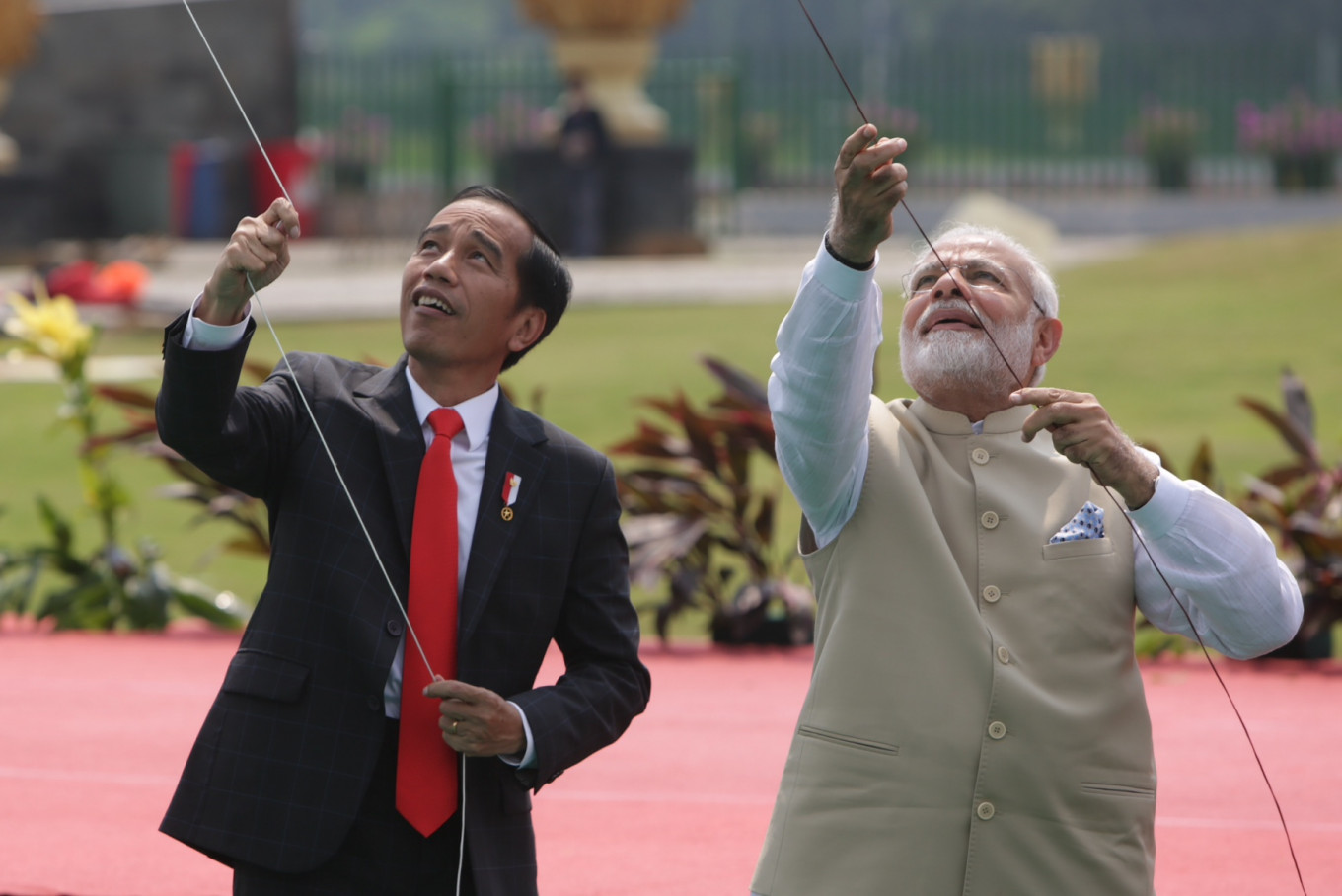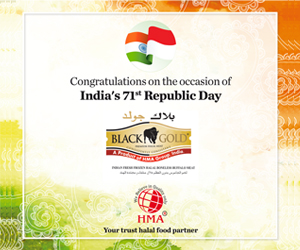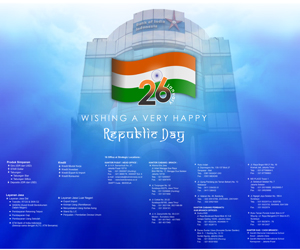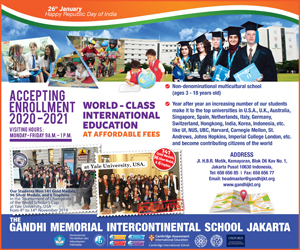On Jan. 26, India will celebrate its 71st Republic Day with joy. Both India and its maritime neighbor Indonesia are also currently celebrating the 70 years since the establishment of their diplomatic relations. In connection with these two important events, The Jakarta Post’s Veeramalla Anjaiah and Sebastian Partogi interviewed Indian Ambassador to Indonesia Pradeep Kumar Rawat at his office recently in Jakarta. The following are the excerpts of the interview.
Question: Your Excellency, India and Indonesia are maritime neighbors and strategic partners. Relations between the two countries have surpassed 70 years. What is the most inspiring factor that has kept both countries’ relationship not only stable but stronger today?
Answer: In two words, the answer would be “Pancasila” and “People”. It is the abiding faith of our two peoples in the values of Pancasila that has allowed the relationship to remain strong despite the ups and downs in the global and regional economic, political and security situation. Based on the values of Pancasila, our two peoples have believed in peace, tolerance and harmony. Our peoples have not subscribed to the idea that nation States should be or can be created solely on the basis of religion or that different religions and cultures cannot co-exist within one nation State.
Indonesia, a country with the largest Islamic population, has a vibrant and diverse cultural and religious society. Similarly, India has a very pluralistic society. India has 19,500 languages as mother tongues, with 22 major languages recognized for official work. Indian nationals practicing Islam, who were 35 million in 1951, are today estimated to be just over 200 million, making India possibly the country with second-largest Islamic population in the world. Just like Indonesia, the distribution of various religious groups in India varies from province to province. Union Territory of Lakshadweep of India has an over 96 percent Islamic population while the State of Mizoram has only 1.35 percent.
Over the centuries, the people of Indonesia have extended a warm welcome to Indian people. Indians have always felt close to the people of Indonesia and worked with them to strengthen bilateral ties. Many areas of India and Indonesia that do not feel geographically as neighbors, they do feel culturally and historically as neighbors.
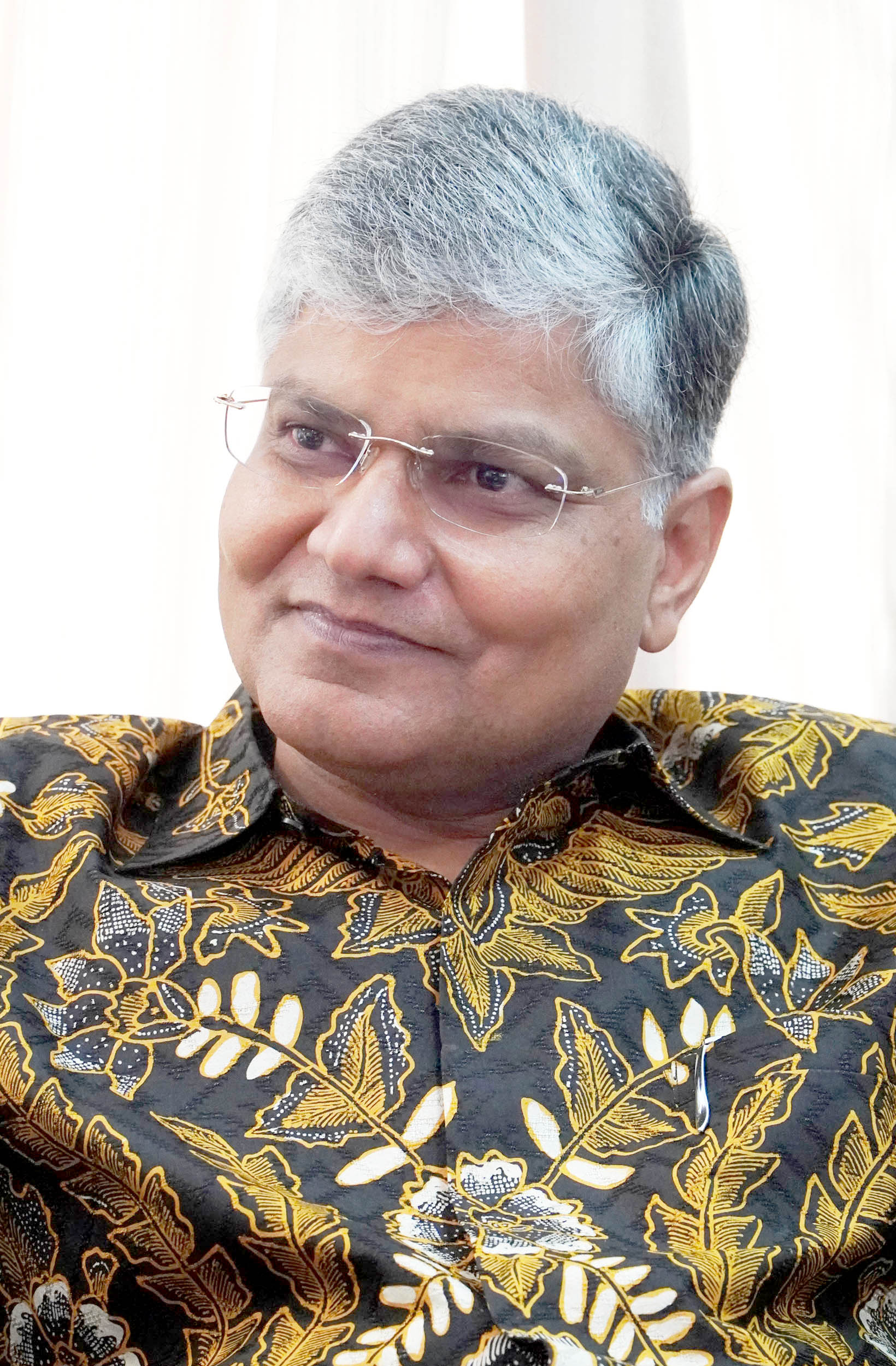
What were the salient features of India’s relations with Indonesia during the last seven decades?
Leaders of our freedom struggles against colonial rule were aware of the historical significance of the success of our respective movements for the global anti-colonial freedom struggle in various parts of the world. They, therefore, decided to cooperate closely, which ultimately led to the founding of the Non-Aligned Movement and the Bandung Conference.
A significant event of this close cooperation was the organization of the first Asian Relations Conference in Delhi in 1947, in which the Indonesian struggle was discussed. The heroic efforts by Biju Patnaik to fly Indonesian leaders, Sutan Sjahrir and Mohammed Hatta, from the conflict zone in Indonesia to attend this Conference are now part of Indonesia-India folklore.
India’s opening a Consul office in Yogyakarta by deputing an able diplomat Mohammed Yunus soon thereafter at the end of 1947 is yet another important event. He left Yogyakarta to attend the first international conference dedicated to Indonesian question organized in India in January 1949. Both Patnaik and Yunus were awarded the Bintang Jasa Utama in 1995.
The spirit of close cooperation based on our shared cultural heritage and our common belief in peace, democracy, freedom of action and thought, as demonstrated in these events, are the most significant aspects of our bilateral relations. It is this spirit that has allowed us to reinvigorate our relationship from time to time. It permeates diverse facets of our engagement as Comprehensive Strategic Partners.
In January 1950 President Sukarno was the Chief Guest at India’s first Republic Day. In the same year Prime Minister Nehru visited Indonesia. After over six decades, 2018 became another year when President of Indonesia has visited India and PM of India has visited Indonesia in the same year.
What is the present state of bilateral relations?
Excellent. I believe that we need to do more work to harness fuller potential of our relationship. Our bilateral trade has the potential to reach US$50 billion from the present level of $21 billion. Indian tourists coming to Indonesia number 600,000 per year, a figure that can multiply if we are able to provide direct air connectivity linking the various major cities of the two countries and shipping connectivity linking our neighboring maritime areas. Our bilateral trade and investment in services – IT, education, health care, financial services etc. can grow multifold if we are able to provide appropriate incentives and a policy framework.
Indian investment in Indonesia at present is in diverse sectors – textiles, steel, automobiles, coal, shipping, airports, construction, oil and gas, petrochemicals, pharmaceuticals, health care, banking, infrastructure and many more - but is still not very visible. If we are able to link our businesses better it would open up many positive opportunities. The opening of an office by the Confederation of Indian Industries (CII) in Jakarta is a welcome step in that direction. While we have a good framework for defense and security cooperation, there is space for more concrete and visible cooperation. On counterterrorism and deradicalization, we have ongoing and new cooperation. Having greater cooperation between us in this area is not only good for us but is in the interest of global community.
How does democratic Indonesia, the world’s biggest Muslim nation, fit in India’s foreign policy?
As I have said in response to some other questions, engagement between our two countries and peoples is not only good for us, but it is also good for the global community. It was true in 1950s when our cooperation unleashed the forces of freedom from colonialism and it is true now when we face a dynamic regional and global situation facing turbulence due to rising terrorism, erosion of international institutions and open challenge to rule of law in some areas. Our two countries, which believe in the values of Pancasila are uniquely placed to help guide a new discourse on Indo-Pacific. We are also well placed to strengthen the inter-faith discourse in the world.
The bilateral trade value, based on Indonesia’s data, reached more than $18 billion in 2018, yet it is still not commensurate with both countries’ real economic potential. The same can be seen in investments. What measures are needed to boost economic ties to rectify this?
As I have said earlier, it is far below potential. But we are only talking of trade in goods. We should also talk of trade in services between our two countries, which at present is not very significant. Our two countries have many similarities – areas where our companies can create synergies for exploiting opportunities not only in our markets but also in third-country markets.
By enhancing trade in services – health care, financial services, IT, education, tourism etc. - we can help make our economies more competitive and serve our consumers better. We should engage in a conversation to re-visit the existing trading and investment arrangements to see which areas are working and which are not and then address various non-performing elements in a comprehensive or omnibus manner.
Despite centuries-old cultural links and decades of political and economic links, the lack of mutual awareness is still a major problem in both India and Indonesia. Although tourist figures are rising in recent years, they are still less than one million in number. What could both countries do to attract more tourists?
I agree but with a qualification. We feel culturally as neighbours – Shahrukh Khan and the song Kuch Kuch Hota Hai are household names in Indonesia as is Mahabharata and Ramayana - but geographically distant. We need to address the geographical part by creating direct connectivity between our two countries. It would help to spur the tourism as well as business linkages.


